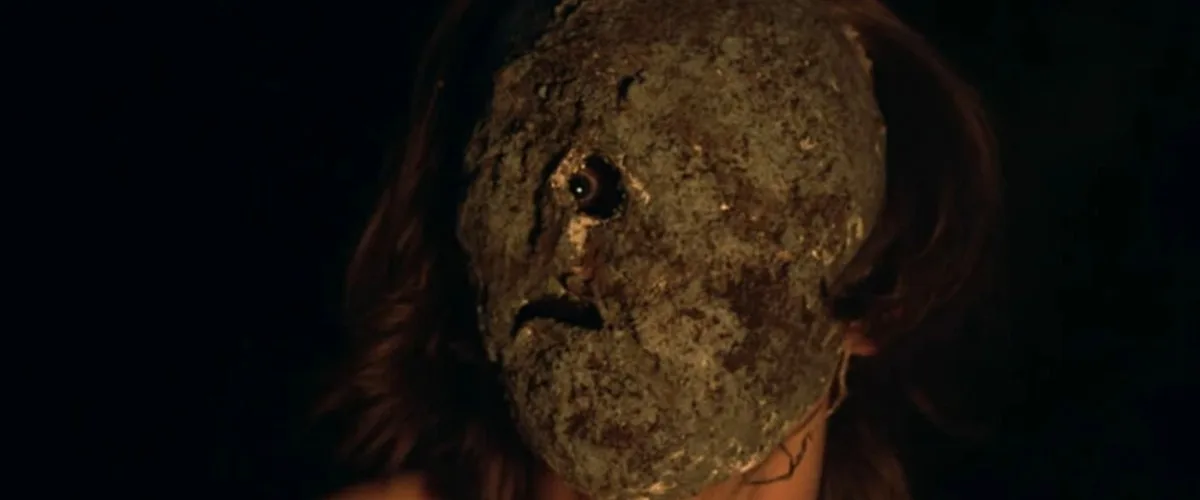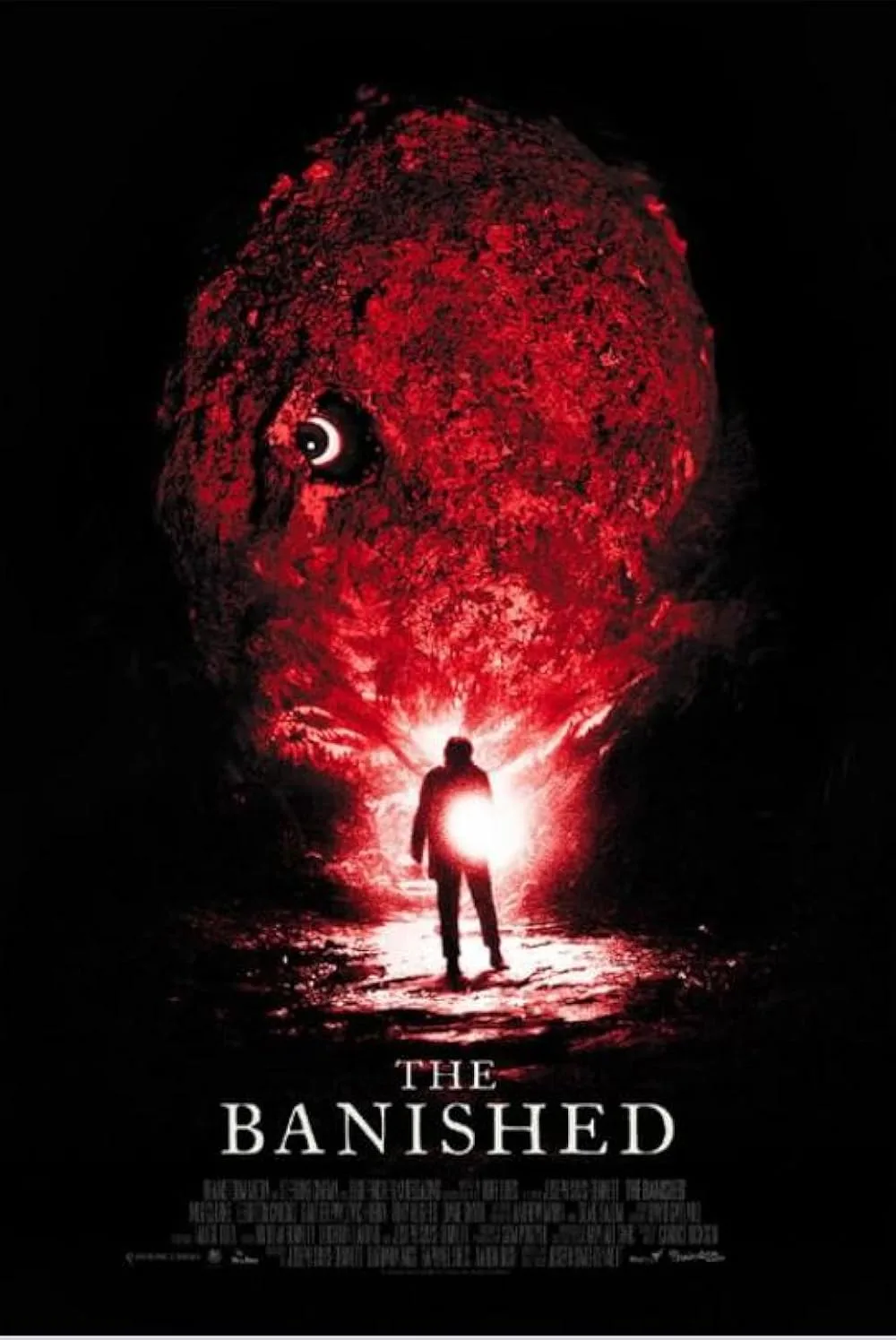“The Banished,” about a grieving woman’s search for her missing brother, sometimes feels like a compendium of modern horror movie clichés. That doesn’t always matter, since the movie is thick enough with dread to work despite its distracting familiarity. Besides, horror fans know that novelty’s only so important in a genre where ambience can, if all goes well, trump most intellectual shortcomings.
Writer/director Joseph Sims-Dennett’s moody trauma drama has most of what’s needed to hook viewers: a bright flashlight in the dark, indicating more than it explains, and a mysterious van of cultists that attracts willing and very desperate people, all of whom have gone missing.
Through a series of impressionistic, non-linear story fragments, we learn that Grace (Meg Eloise-Clarke) has fled to the woods to investigate the disappearance of her estranged sibling David (Gautier de Fontaine), with whom she hopes to reconnect after the death of their father. Their uncle Rex (Tony Hughes) warns Grace that she shouldn’t bother. Still, his warning eventually proves to be more intriguing than effective once Grace learns that Rex’s wife, Margy (Cassandra Hughes), has also vanished. Missing posters line a local general store’s wall, making it harder to dismiss the mounting sense that wherever David has gone isn’t safe.
The most compelling parts of “The Banished” are also the least effects-driven since Grace usually can’t find what she’s looking for. Nobody wants to help her, not even her reluctant guide, Mr. Green (Leighton Cardno), a former teacher who shakes Grace down for money before he agrees to help her navigate the woods.
A disorienting mix of handheld and higher-resolution photography also gives Grace’s investigation an extra kick as she struggles to make sense of whatever’s surrounding her. She doesn’t really find what she’s looking for, and when she does, it’s either not what she’s expecting or what she’s hoping for. An empty tent, a walkie-talkie, a long knife with a mysterious symbol over the hilt, and a dead dad with a dark past—the sky’s the limit from here.
Unfortunately, “The Banished” deflates spectacularly once it becomes more about its doomed characters’ inevitable fate. Drugs, poverty, and a folk horror-friendly cult all tick off formulaic boxes that you might be looking for from a movie with this title. A feel-bad ending puts a sour cherry on top of Grace’s quest and makes it that much harder to hang onto the rest of the movie’s well-known pleasures.
For starters, there’s Tauese Tofa’s throbbing, high-strung score, which drones and rumbles in all the right places. Tofa’s music is suggestive enough to make you worry that something could be about to happen, even if it rarely does. Next, the movie’s editors deserve credit for not only giving shape, but rhythm and a welcome sense of urgency to Grace’s story. I’m not so sure about the effectiveness of the movie’s back-and-forth plot structure, which requires some extra attention from viewers, but it’s hard to argue with the sure-footed and sometimes merciless pace. The cinematography, credited to director of photography Sam Powyer, also puts viewers on edge, especially once Grace starts wandering around the woods.
Strangely, the most disappointing thing about “The Banished” has nothing to do with how hard the movie dissolves into an indistinct heap. Instead, there’s not much to Grace’s connection with supporting characters like Green or the voice at the end of the walkie-talkie she discovers in the woods. So, while Grace is mainly threatened by her circumstances, rather than the implications of whatever she’s after. That’s especially disappointing as far as Green goes, since he’s the only character with a compelling backstory. Green’s dialogue has its flinty charms, too, but it’s hard to enjoy them; the closest we get to understanding him is when Grace asks him why he stopped teaching, and he wordlessly tilts his flask at her.
Part of what makes “The Banished” so frustrating is how its elliptical construction stands in for Grace’s harried worldview. Her mind’s moving so fast because she’s trying to give order to an increasingly chaotic investigation, away from one part of her life (her father) and towards a potential resolution with another (David).
Still, the past remains gloomy and generic by movie’s end, making it harder to appreciate all the effort that Grace puts into reconciling her family history with her increasingly oppressive present. You can’t go home again, as many jaded horror fans already know, so why bother going through the motions one more time? “The Banished” suggests that the worst self-deception you can fall for is the necessary belief that there must be a light at the end of the tunnel.




















